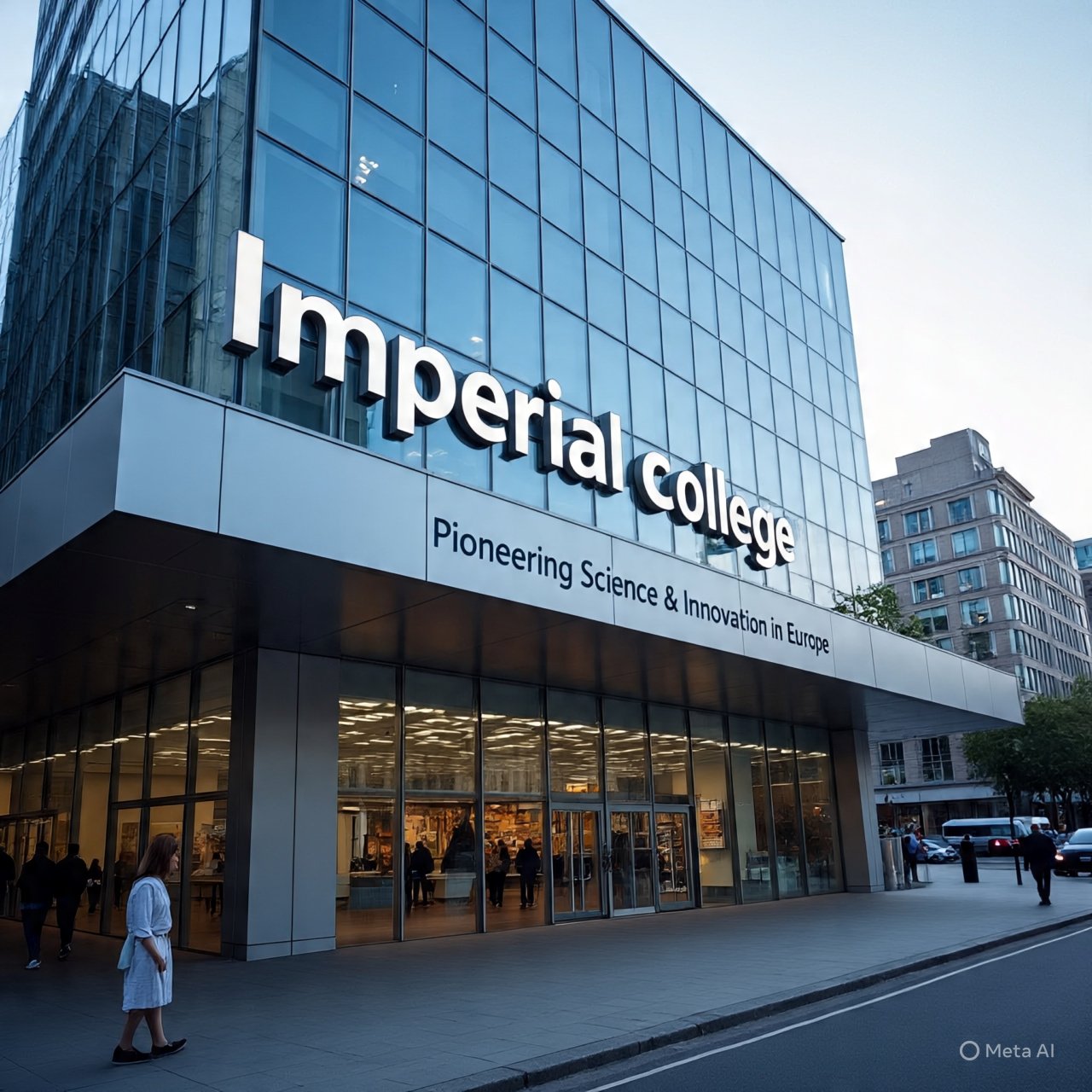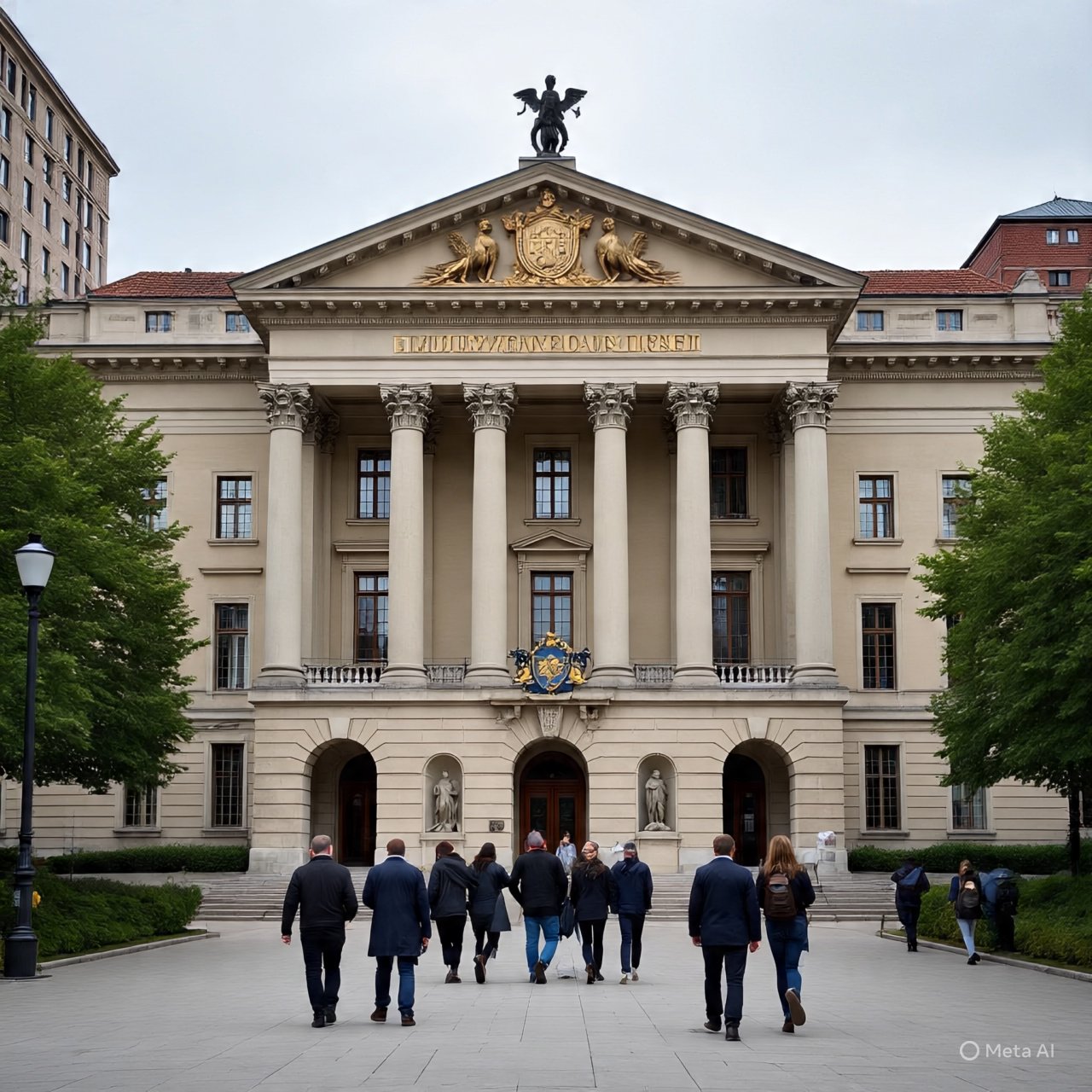🌍 Imperial College London: A Living Center of Scientific Innovation and Human Development
Imperial College London is not just an educational institution but a living center of scientific innovation and human development. Located in the historic part of South Kensington, this institution has been attracting the best minds from around the world since its formation.
Introduction
Imperial College London is not just an educational institution but a living center of scientific innovation and human development. Located in the historic part of South Kensington, this institution has been attracting the best minds from around the world since its formation. This is the place where life-saving discoveries like penicillin came into existence, where the secrets of quantum computing were revealed, and where a decisive role was played in the development of the COVID-19 vaccine. Imperial’s story is a fascinating tale of the power of science, human courage, and dedication to the future. This institution skillfully combines its royal heritage with modern scientific innovations in such a way that every invention opens new paths for human welfare.
A New Chapter in Scientific Heritage
Imperial College London’s journey began in 1907 under a royal charter, but its roots go much deeper. It was actually the result of the merger of three great institutions – the Royal College of Science, the Royal School of Mines, and the City and Guilds College. Each institution had unparalleled reputation in its field, and their merger created an intellectual force that played an important role in the rise of the British Empire. Established under the patronage of scientists from the Royal Society of London, this institution came with a clear mission from the very beginning: to raise the standard of human life through science, engineering, and medicine. Its location in South Kensington was also very well thought out – this campus, located between the Victoria and Albert Museum, the Science Museum, and the Natural History Museum, was like an intellectual oasis. The continuous patronage of the royal family made it not just an educational institution but a symbol of national prestige.
Tale of Architectural Grandeur
Imperial College London’s campus is a living tale of its grandeur. The buildings spread across the center of the royal researcher city are not just piles of stone and bricks, but each building is like a chapter that tells the story of scientific progress. The architectural structure of the campus shows a unique blend of Victorian architectural splendor and modern functionality. The historic Queen’s Tower, which is 287 feet tall, is the most prominent symbol of the campus, while the newly built White City campus is the center of cutting-edge scientific research. The libraries, laboratories, and lecture theaters here have a spirit that inspires every student to discover and innovate. Every corner has some story hidden that changed the world of science. Every part of the campus has been built according to a plan so that students and teachers from different fields can work together. This interdisciplinary approach is actually the key to Imperial’s success.
Center of Global Minds
Imperial College London has always been successful in attracting the best minds from around the world. Students and teachers from more than 140 countries form a global community here where ideas have no borders. This diversity is not just a numerical fact but the secret of Imperial’s success. The fusion of different cultures, different perspectives, and different experiences creates a creative environment where new ideas flourish. Imperial’s global network connects it with renowned institutions worldwide. It has collaboration agreements with institutions like Massachusetts Institute of Technology, Tsinghua University, and ETH Zurich. These global partnerships not only enhance the quality of research but also introduce students to international experience. Every Imperial student, when graduating from here, emerges not only as an expert but as a global citizen committed to solving the world’s problems.
Revolution in Medical Research
Imperial College London’s Faculty of Medicine is famous worldwide for its medical research and educational standards. Sir Alexander Fleming’s discovery of penicillin not only showed Imperial but all of humanity a new path. Even today, this institution is at the forefront in every field of medical research. Immunotherapy in cancer treatment, brain-computer interface in neuroscience, and vaccine development against pandemics – in every field, Imperial researchers are setting new paths. St Mary’s Medical School here is the same place where penicillin was discovered, and it is still an important center of medical research. Imperial’s goal is not just to treat diseases but to discover methods of their prevention. This is why special attention is paid to preventive medicine here. Imperial’s doctors and researchers not only serve in NHS hospitals but are also working to solve health problems worldwide.
Innovations in Engineering
Imperial College London’s Department of Engineering is the center for giving real shape to future technologies. Research is ongoing here in every field, from robotics to artificial intelligence, and from aerospace engineering to sustainable engineering. Imperial engineers have recently developed a robotic system that can assist doctors during surgery. In the field of artificial intelligence, researchers here are developing algorithms that can help doctors in disease diagnosis. In aerospace engineering, Imperial researchers are working on designs for new aircraft that will use less fuel. In sustainable engineering, engineers here are discovering construction materials that will be environmentally friendly. In every field, Imperial’s goal is to build a better future. Engineering graduates from here hold important positions in world-renowned companies and are changing the world through their inventions.
Efforts for a Sustainable Future
In the current era of climate change, Imperial College London is committed to a sustainable future. Researchers here are discovering new sources of clean energy, finding ways to reduce carbon emissions, and developing designs for sustainable cities. Imperial’s Grantham Institute – Climate Change and Environment is a center where the effects of climate change are studied and their solutions are discovered. This institution is not only conducting research but also providing advice to governments and international organizations. Projects running under Imperial include new solar energy systems, improved designs of wind turbines, and new sources of geothermal energy. Researchers here have recently discovered a method by which carbon dioxide can be removed from the air and converted into useful products. This invention could prove to be an important weapon in the fight against climate change.
Training Entrepreneurial Skills
At Imperial College London, knowledge is not taught just for the sake of knowledge but is used for social change and economic development. This institution promotes entrepreneurial skills among its students and teachers. At Imperial’s Enterprise Lab, students are helped to give practical shape to their business ideas. Incubator programs, mentorship sessions, and funding opportunities are provided here. Thousands of startup companies have been established under Imperial, which have secured billions of dollars in investment and created thousands of jobs. Many of these companies are now operating globally. Imperial’s Translation & Commercialisation Office helps researchers in the commercialization of their inventions. This business environment encourages students to become job creators rather than just employees.
Leadership in the Digital Age
In the digital age, Imperial College London holds a leadership position in the fields of data science, machine learning, and artificial intelligence. Researchers at the Data Science Institute here are using these technologies in fields such as health, finance, transportation, and meteorology. Imperial researchers have recently developed an AI system that performs better than doctors in diagnosing breast cancer. In the financial sector, data scientists here have developed new systems for fraud detection. In the transportation sector, researchers here are developing better algorithms for self-driving cars. For the study of climate change, scientists here are making better predictions using AI. Imperial is not only working on the development of these technologies but also considering their ethical use.
Partnerships in Basic Science
Imperial College London is making important contributions in the field of basic science. Physicists, chemists, and mathematicians here are pushing the boundaries of knowledge. In physics, Imperial scientists are working on quantum computing, dark matter, and gravitational waves. In chemistry, researchers here are discovering new compounds that can help in the production of medicines and new materials. In mathematics, Imperial mathematicians are formulating new theories that can be used in various fields of science and technology. This basic research often forms the foundation of practical inventions. For example, basic research conducted at Imperial later played an important role in cancer therapy. Another basic research helped in the development of new semiconductor materials.
Global Health Challenges
Imperial College London is committed to solving global health challenges. This institution is working on health problems not only of developed countries but also of developing countries. Researchers at Imperial’s Global Health Institute are busy fighting malaria, tuberculosis, HIV/AIDS, and other infectious diseases. During the COVID-19 pandemic, Imperial researchers developed models of virus spread that deeply affected the policies of governments worldwide. Imperial researchers were also involved in vaccine development. This institution works with global health organizations such as the World Health Organization. Imperial students and teachers conduct field work in dozens of countries every year and work to solve health problems.
Partnerships in Space Research
Imperial College London is making important contributions in the field of space research. Researchers in the Space and Atmospheric Physics Group here are studying the space environment, planets, and stars. Imperial engineers have developed components for spacecraft for the European Space Agency and NASA. Researchers here have developed instruments for the Mars rover. In the field of Earth observation, Imperial scientists are studying climate change using satellite data. Small satellites (CubeSats) being developed under Imperial are also being used for various research purposes. Advances in space research not only help us learn about the universe but also provide new technologies to improve life on Earth.
Innovations in Biotechnology
Imperial College London is known for innovations in the field of biotechnology. Researchers in the Department of Bioengineering here are working on synthetic biology, tissue engineering, and genetic engineering. Imperial researchers have recently developed a synthetic organism that can decompose plastic waste. In tissue engineering, scientists here are working on the production of artificial organs. In genetic engineering, Imperial researchers are improving CRISPR technology. These researches are being used not only in the field of medicine but also in agriculture and environmental protection. Several biotechnology companies established under Imperial are commercializing these researches.
Innovation in Educational Methods
Imperial College London is also known for innovation in educational methods. Project-based learning, online education, and interdisciplinary courses are promoted here. Imperial’s goal is not just to provide information but to develop critical thinking, creativity, and self-learning abilities in students. New educational methods are being researched at the EduTech Lab here. Methods such as education through virtual reality, AI-based personalized learning, and gamification of education are being tested. Imperial teachers introduce new teaching methods every year. These educational methods prepare students for the challenges of a complex and rapidly changing world.
Industrial Partnerships
Imperial College London has deep cooperation with industry. This institution works on research and development projects in collaboration with the world’s major companies. With the help of Imperial’s Industrial Partnerships Office, companies can work with researchers here. The purpose of this industrial cooperation is to convert academic research into practical products. Researches conducted under Imperial have given birth to numerous commercial products. These include new medicines, new materials, new technologies, and new devices. Imperial graduates hold important positions in world-renowned companies. These industrial partnerships are not only helping in economic development but are also playing an important role in improving the quality of life.
International Cooperation
Although the UK has left the European Union, Imperial College London is maintaining its academic and research relations with Europe and the world strongly. This institution is playing an active role in international research projects including the European Union’s Horizon Europe program. Imperial’s global network connects it with the best institutions and minds worldwide. Imperial’s international partners include renowned institutions like MIT, Stanford University, National University of Singapore, and Max Planck Society. This international cooperation not only enhances the quality of research but also introduces students and teachers to global experience.
Vision for the Future
Imperial College London is looking towards the future while working on its glorious history. This institution is investing in fields like artificial intelligence, clean energy, and biotechnology. Imperial’s vision is to create a world where science and technology are used for human welfare. In the coming years, Imperial’s goal is to discover solutions to the world’s biggest scientific and technical challenges. These include climate change, global health problems, sustainable energy, and food security. Through its research, education, and global cooperation, Imperial College London will continue to play an important role in the development of not only Europe but all of humanity.


